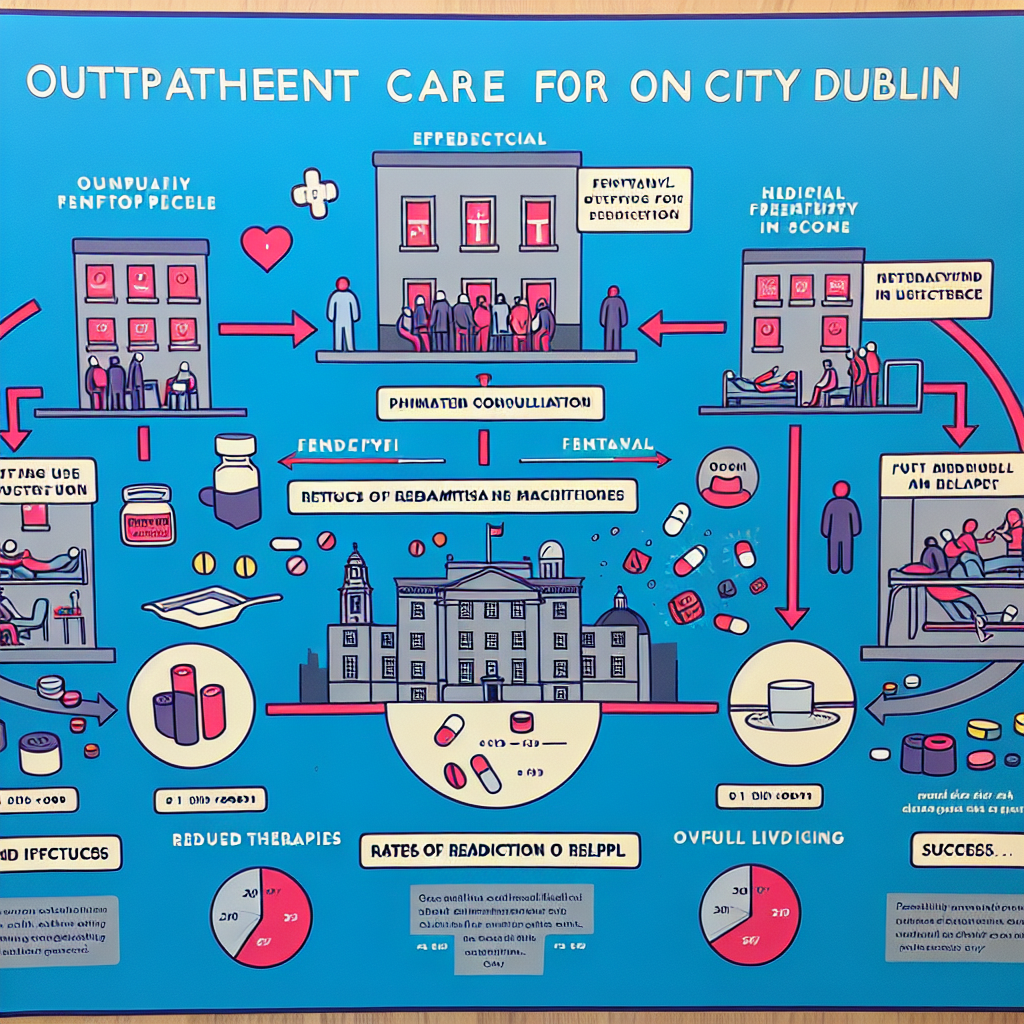-
Table of Contents

“Comprehensive Support, Lasting Recovery: The Power of Inpatient Care for Fentanyl Addiction”
Introduction
Inpatient care for fentanyl addiction offers a structured and supportive environment that is crucial for individuals seeking to overcome this powerful opioid dependency. The benefits of inpatient care include 24/7 medical supervision, which ensures immediate intervention in case of withdrawal complications or other medical emergencies. This level of care also provides a safe and controlled setting, free from external triggers and access to the drug, which significantly reduces the risk of relapse. Additionally, inpatient programs offer comprehensive treatment plans that include medical detoxification, behavioral therapy, counseling, and support groups, all tailored to address the unique needs of each patient. The immersive nature of inpatient care fosters a community of support among patients, which can be instrumental in building the emotional resilience needed for long-term recovery. Overall, inpatient care for fentanyl addiction provides a holistic approach that addresses both the physical and psychological aspects of addiction, greatly enhancing the chances of successful recovery.
Comprehensive Medical Supervision in Inpatient Care for Fentanyl Addiction
Inpatient care for fentanyl addiction offers a comprehensive approach to recovery, providing a structured environment where individuals can receive the medical supervision and support they need. This type of care is particularly beneficial for those struggling with fentanyl addiction due to the drug’s potent nature and the severe withdrawal symptoms it can induce. By opting for inpatient care, patients are placed in a controlled setting where they can focus entirely on their recovery without the distractions and triggers of the outside world.
One of the primary advantages of inpatient care is the round-the-clock medical supervision it provides. Fentanyl withdrawal can be intense and, in some cases, life-threatening. Symptoms such as severe anxiety, muscle pain, insomnia, and even respiratory issues can arise. In an inpatient setting, medical professionals are available 24/7 to monitor these symptoms and administer appropriate treatments. This constant supervision ensures that any complications are promptly addressed, significantly reducing the risk of relapse or medical emergencies.
Moreover, inpatient care facilities are equipped with a multidisciplinary team of healthcare providers, including doctors, nurses, therapists, and counselors. This team works collaboratively to create a personalized treatment plan tailored to the individual’s specific needs. The holistic approach encompasses not only the physical aspects of addiction but also the psychological and emotional components. Through individual and group therapy sessions, patients can explore the underlying causes of their addiction, develop coping strategies, and build a support network with others who are on the same journey.
In addition to medical supervision and therapeutic support, inpatient care offers a structured daily routine that fosters a sense of stability and predictability. This structure is crucial for individuals recovering from fentanyl addiction, as it helps them establish healthy habits and routines. Regular meals, scheduled therapy sessions, and recreational activities are all part of the daily schedule, providing a balanced approach to recovery. This structured environment minimizes the risk of exposure to triggers and temptations that could lead to relapse.
Furthermore, inpatient care facilities often incorporate various complementary therapies such as art therapy, yoga, meditation, and exercise programs. These activities not only promote physical well-being but also help patients reconnect with themselves and discover new interests and passions. Engaging in these activities can be incredibly empowering, boosting self-esteem and providing a sense of accomplishment. This holistic approach ensures that patients are not only addressing their addiction but also nurturing their overall well-being.
Another significant benefit of inpatient care is the sense of community it fosters. Being surrounded by others who are facing similar challenges can be incredibly comforting and motivating. The shared experiences and mutual support create a strong sense of camaraderie, which can be a powerful catalyst for change. Patients often form lasting bonds with their peers, providing a support network that extends beyond the duration of their stay in the facility.
In conclusion, inpatient care for fentanyl addiction offers a comprehensive and supportive environment that addresses the multifaceted nature of addiction. With round-the-clock medical supervision, a multidisciplinary team of healthcare providers, a structured daily routine, and a sense of community, individuals are given the best possible chance to overcome their addiction and build a healthier, more fulfilling life. The journey to recovery is undoubtedly challenging, but with the right support and resources, it is entirely achievable.
Structured Environment and Support Systems in Inpatient Care for Fentanyl Addiction
Inpatient care for fentanyl addiction offers a structured environment and robust support systems that are crucial for individuals seeking to overcome this powerful opioid. The journey to recovery is often fraught with challenges, and the structured environment of inpatient care provides a stable foundation upon which individuals can build their new, drug-free lives. This setting is meticulously designed to eliminate the triggers and stressors that often lead to relapse, thereby creating a safe haven where patients can focus entirely on their recovery.
One of the most significant benefits of inpatient care is the constant supervision and medical support available around the clock. This continuous care is particularly vital during the initial detoxification phase, which can be physically and emotionally taxing. Medical professionals are on hand to manage withdrawal symptoms, ensuring that patients are as comfortable as possible during this critical period. The presence of healthcare providers also means that any complications can be promptly addressed, reducing the risk of severe health issues.
Moreover, the structured environment of inpatient care extends beyond medical supervision. Daily routines are carefully planned to include a variety of therapeutic activities, such as individual counseling, group therapy sessions, and educational workshops. These activities are designed to help patients understand the root causes of their addiction, develop coping strategies, and build a support network. The consistency and predictability of these routines can be incredibly reassuring for individuals who have lived in the chaos of addiction, providing a sense of normalcy and stability.
In addition to the structured environment, the support systems in inpatient care are invaluable. Patients are surrounded by a community of individuals who are going through similar experiences, fostering a sense of camaraderie and mutual understanding. This peer support can be incredibly motivating, as patients share their struggles and successes, learning from one another and offering encouragement. The bonds formed in these settings often extend beyond the duration of the inpatient program, providing a lasting network of support.
Family involvement is another critical component of the support system in inpatient care. Many programs offer family therapy sessions, which can help to mend strained relationships and educate loved ones about the nature of addiction. This holistic approach ensures that the patient’s support network is well-informed and prepared to provide the necessary encouragement and understanding once the individual transitions back to everyday life.
Furthermore, inpatient care programs often incorporate holistic therapies such as yoga, meditation, and art therapy. These activities not only provide a healthy outlet for stress and emotions but also help patients to discover new interests and passions. Engaging in these activities can be a powerful reminder that life without fentanyl can be fulfilling and joyful.
The benefits of inpatient care for fentanyl addiction are manifold, but perhaps the most inspiring aspect is the transformation that individuals undergo. The structured environment and comprehensive support systems work in tandem to empower patients, helping them to reclaim their lives and envision a future free from addiction. While the journey to recovery is undoubtedly challenging, the resources and support available in inpatient care make it a viable and hopeful path for those struggling with fentanyl addiction. By providing a safe, structured, and supportive environment, inpatient care offers individuals the best possible chance at achieving lasting recovery and rediscovering the joy of a drug-free life.
Q&A
1. **Question:** What is one key benefit of inpatient care for fentanyl addiction?
**Answer:** Inpatient care provides a structured and controlled environment, reducing the risk of relapse by removing access to fentanyl and other substances.
2. **Question:** How does inpatient care support the physical health of individuals with fentanyl addiction?
**Answer:** Inpatient care offers medical supervision and support, which is crucial for managing withdrawal symptoms and addressing any co-occurring health issues.
Conclusion
Inpatient care for fentanyl addiction offers numerous benefits, including a structured and supervised environment that ensures patient safety during detoxification, access to comprehensive medical and psychological support, and a focus on individualized treatment plans. This type of care also provides a stable environment free from external triggers and stressors, which can significantly enhance the chances of successful recovery. Additionally, inpatient programs often include a range of therapeutic activities and support groups that help patients build coping skills and a strong support network, essential for long-term sobriety. Overall, inpatient care is a highly effective approach for addressing the complex and severe nature of fentanyl addiction.



